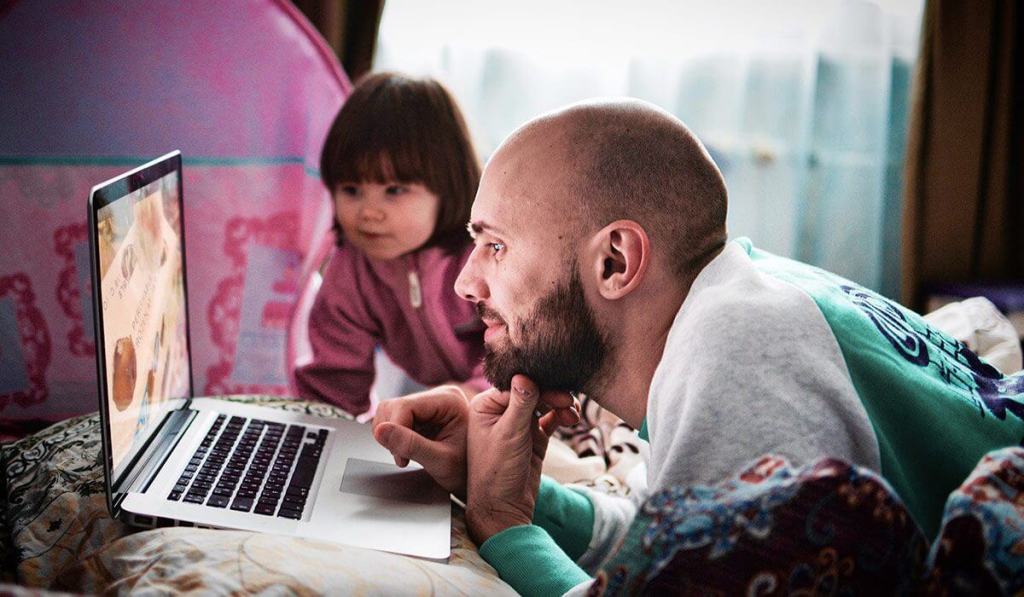For some companies, working from home is considered a rare treat – for Simply Business, it’s a way of life.
Working from home is on the rise, with more than 40% of Americans reporting that they spend some time telecommuting for their jobs. Yahoo aside, many employers are starting to realize the value of letting employees’ work from their homes, with benefits including increased productivity and the potential for the equalization of wages between the genders.
But companies like Simply Business are taking work-from-home benefits up a notch by designing entire company operations around their remote workers.
From kitting out conference rooms with remote meeting software to allowing employees unlimited work-from-home time, the online insurance agency is making it possible for employees to achieve that ultimate goal: a healthy work-life balance.
So how do they do it?
Design For Remote Work
“We have a saying here that pretty accurately describes how we approach working from home: If one person is remote, then everyone is remote,” says CEO of Simply Business Bill Peña. “That means we hold teamwide meetings online, as well as regular level-ups on best practices for building team culture within a remote workforce.”
The key to empowering employees to work from home is designing the office to accommodate this policy. For example, companies can say they actively support remote employees, but their technology might make it too difficult for these employees to dial in to a meeting. As a result, they get left out of meetings, which can cut them out of making pivotal decisions within their teams.
Companies need to intentionally design for remote workers and continually remind their other employees to be aware of people who are working from home. It can take a lot of effort at first, but soon accommodating remote workers be second nature to your business.
Build a WFH-Friendly Culture
Designing an office for remote work is one thing – but how do you build team culture if your employees aren’t spending five days a week on the job?
That’s why it’s important for companies to actively include people who are working from home with simple techniques like:
- Attend a remote meeting a few minutes early to chat with other folks. It’s like the remote equivalent of water cooler talk – you can catch up on what’s going on in the office, ask attendees how they’re doing, or just shoot the breeze until the meeting starts. It’s a small but important step that helps remote workers feel included within the office environment.
- Hold regular team-building events. Try to schedule them to get as many people in the office as possible. Whether it’s a holiday party or a weekly pub trivia meetup, regular team-building opportunities allow people to get to know others within the office without having to be there five days a week.
- Have a clear work-from-home policy, and stick to it. It could be as straightforward as giving your manager at least 24 hours notice about working from home, or it could be simple like updating a company-wide calendar dedicated to tracking who’s working remotely.
On this last point, it’s extremely important for companies to be consistent with their work-from-home policies. If you’re touting unlimited work-from-home benefits in your recruitment strategies, your employees won’t be impressed to discover that your workplace culture subtly discourages remote work.
Trust Is Given, Not Earned
That keyword – trust – is precisely why so many companies may not be following suit with Simply Business. Many managers may be reluctant to let their employees work from home simply because they don’t trust them – working from home conjures up images of binging on Netflix or taking naps between meetings.
That’s a real shame, because allowing employees to work from home is perhaps the most visible sign that a company implicitly trusts their talent.
“We genuinely care about the well-being of our teammates,” says Peña. “Giving our employees the ability to work from home when they see fit is the best way for us to demonstrate that trust and caring.”
Ultimately, working from home emphasizes that it doesn’t necessarily matter where employees do their best work – just that they do their best work. Employees should feel empowered to work within an environment that allows them to bring their A-game to whatever project they’re working on. Some companies may not be willing to make that leap of faith, but others trust that their employees will deliver their very best work, regardless of whether it was done in the office or at home.
Top talent should feel comfortable working in the office, at home in their pjs, or even at a favorite coffee shop. While remote work doesn’t – pardon the pun – work for everyone, companies like Simply Business are leading the charge in creating a workplace that recognizes the importance of a flexible schedule.
After your home office is setup, run a business insurance quote to ensure you’re covered.
